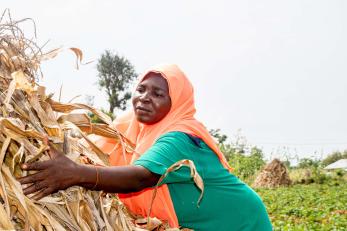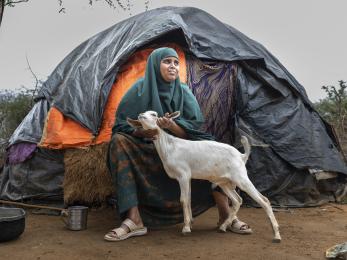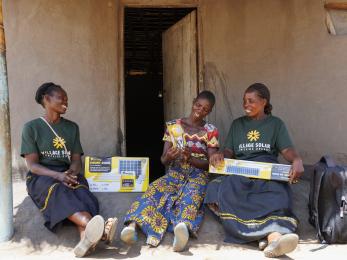Unlocking Climate Finance for Fragile States

Overcoming the Fragility Barrier
Breaking the Cycle
Download the report ▸
Download the UN Peacebuilding Fund case study ▸
Download the Peace Bonds case study ▸
Download the Crisis Modifiers case study ▸
Download the COVAX case study ▸
Many fragile and conflict-affected situations (FCS) are highly vulnerable to climate change - yet the more fragile a country is, the less climate finance it has historically received. Our own research suggests that across the 10 most fragile states, only $223 million in climate adaptation finance was received in 2021, less than 1% of total adaptation finance flows.
Mercy Corps works in places characterized by fragility and impacted by conflict, where the impacts of climate change are devastating and where communities are ill-equipped to cope, adapt and thrive. Through our research and experience implementing program solutions, we found that it is simply not true to say that delivering climate adaptation work in fragile contexts cannot be done.
The challenges to accessing and utilizing climate adaptation finance in FCS have been well documented. These can be mapped onto a life-cycle framework, from the strategies driving climate funders’ low risk appetite and tolerance in working in FCS, to the stringent requirements for funding access, project approval and partnerships that limit planning and development of the program, the inflexible operational protocols that hinder adaptive implementation and delivery, and the data and travel restrictions that make it difficult to monitor project progress and measure outcomes.
Whilst our understanding of the difficulties in delivering climate finance in fragile and conflict-affected situations has increased, the policy debate must now shift to identifying solutions and policy recommendations to overcome the fragility and climate finance barrier. The reports above showcase innovative solutions and policy recommendations that climate funders could seek to adopt to improve their reach and impact in FCS.

